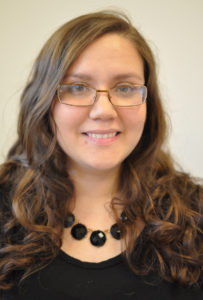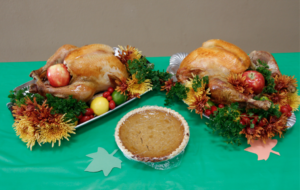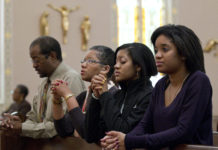“Gratitude bestows reverence, allowing us to encounter everyday epiphanies, those transcendent moments of awe that change forever how we experience life and the world.”
— Attributed to poet John Milton
There are so many things for which to be grateful to God. What’s amazing is that once you start finding blessings, they multiply.
A meditation I jotted down this year asked, “If I were to make a poem of thanks to God, for what would I be most grateful?” During a stressful week, I reread the question. I remembered all of God’s gifts in my life and in the lives of people I know. My frustration (and ungratefulness) lifted when I realized that my gratitude poem would be a very long one.
Benedictine monk David Steindl-Rast once gave a TED talk saying that “it is not happiness that makes us grateful. It’s gratefulness that makes us happy.”
While acknowledging that there are things in life we cannot be grateful for — like tragedies, violence or disasters — Br. Steindl-Rast said we can be grateful for the opportunity in each moment.
He explained that each moment is a gift and gave a simple formula to practice gratefulness:
- Stop (so you don’t miss opportunity)
- Look (and discover the riches God gives us)
- Go (with it)
It’s scientifically proven that gratitude makes us healthier. Studies show that not only does being grateful feel good, it is also good for our hearts, our relationships and our ability to reduce stress.

Life can be filled with unexpected challenges and worries and sometimes it is easy to slip into ungratefulness, but being reminded of the everyday blessings God provides is an antidote to the woes of the world.
We can thank God for the miracles we sometimes take for granted — like life, health, sunshine, water, air. We can also be thankful for family, friends and loved ones — whose unconditional love gives us sustenance and support and helps us grow.
As we prepare to celebrate Thanksgiving, we can reflect on our reasons to be grateful. You can try to have a gratitude jar or a gratitude journal to list each day’s blessings or try to be intentional about thanking God each day.
 When Thanksgiving Day comes, we can collectively thank God for all of His blessings and mercies of the year.
When Thanksgiving Day comes, we can collectively thank God for all of His blessings and mercies of the year.
As Catholics, we partake in thanksgiving every time we share in the Eucharist (which means “thanksgiving” in Greek).
Br. Steindl-Rast also said that “if you are grateful, you are not fearful,” you can enjoy and respect the differences between people, and “act out of a sense of enough and not of a sense of scarcity, and you are willing to share.”
As we recognize what God has done for us, we can discern what we’re called to do and take action to share our blessings. In a way, it is fitting that we celebrate Thanksgiving soon before Advent starts.
We can take stock of all the gifts we have received and resolve to generously share what we have with those less fortunate, and we can also thank people for their kindness when we are the ones who are in need and thank God for the opportunities to give thanks.





![[VIDEO] Make Sunday feel like Sunday again](https://www.catholicsun.org/wp-content/uploads/2021/04/2021-YOUTUBE-BISHOP-MESSAGE-THUMBNAIL-ENGLISH-218x150.png)

